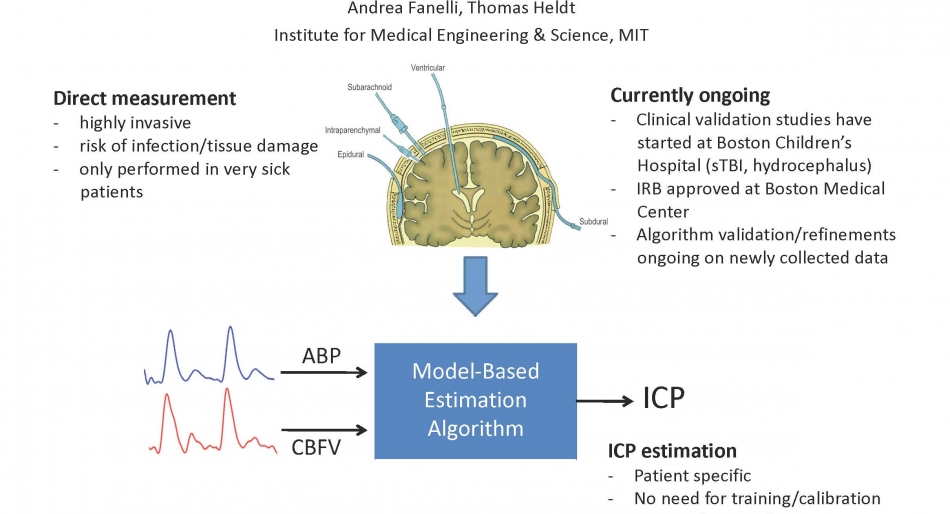
Authors: Andrea Fanelli, Thomas Heldt
Intracranial pressure (ICP) is one of the key variables to monitor in patients with brain injury. Current techniques to measure ICP are extremely invasive, as they require neurosurgical expertise to drill a hole into the skull and to place a pressure probe in the brain parenchyma or cerebral fluid spaces. The invasiveness of the procedure and the attendant risk for infection and damage to vital brain structures allow this measurement to be made in only very sick patients. We developed a model- based approach to noninvasive, continuous, patient-specific and calibration-free estimation of ICP. The method is based on measuring the arterial blood pressure (ABP) waveform at a peripheral artery and the cerebral blood flow velocity (CBFV) waveform in a major cranial vessel (via transcranial Doppler ultrasound), and estimating ICP through a mechanistic model of cerebrovascular physiology. After validating the algorithm on 45 records from patients with severe traumatic brain injury in whom invasive ICP measurements were available for comparison of our ICP estimate, we are currently collecting new data from patients at the Boston Children’s Hospital. We are also improving the performance of the algorithm by investigating alternative approaches to compensate for the waveforms’ phase lag that is introduced by the elastic properties of the cerebrovascular system and by the latencies of the instrumentation.
